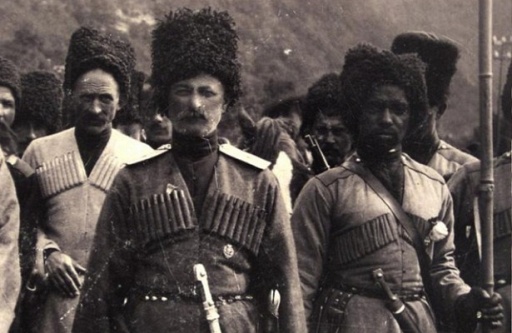

The Ethnic History of the Abkhazians in the XIX-XX centuries, by Tejmuraz Achugba
The path of the ethnic history of the Abkhazian people has been especially complex and thorny. Regardless of the military-political, socio-economic, religious, and ethno-cultural attacks from different world-powers over many centuries, upto the moment of Abkhazia’s entry into the Russian Empire (1810), the whole population of historical Abkhazia retained its general Abkhazian ethno-cultural identity. The self-designation of the population of this region is Apswa. From this is derived the self-designation of the country of their habitation, namely Apsny. The Abkhazians have been, and are still today, united by a single language, the memory of a common origin, common ethnic customs, habits, traditions, a shared socio-economic structure and socio-familial lifestyle, general Abkhazian toponyms, hydronyms, and anthroponyms.
The existence of the Abkhazian state, which has a history of 12 centuries, has played a significant role in preserving the distinctiveness of the Abkhazian people and the stability of their ethnic self-awareness. Thanks to the consolidating role of the Abkhazian state (in whatever form it took at different times), thanks to the historical memory of the people of the existence in the past of a powerful Abkhazian feudal state headed by a king of the Abkhazians (Apsha), there was no change in the Abkhazian people’s ethnic self-awareness until the annulment of the Abkhazian princedom (1864). The abolition of Abkhazian statehood was not all; the events that followed included: the mass-deportation of the Abkhazians and the colonisation of Abkhazia, which determined the tragic fate of the Abkhazian ethnos.
Thus, with the ending of the Russo-Caucasian War (1817-1864) and the abolition of Abkhazian statehood, tsarism began the further realisation of a plan to deport the ‘untrust-worthy’ core population of Abkhazia. Irreparable damage was done to their gene-fund, language and traditional culture through the mass-resettlement of the Abkhazians beyond the frontiers of their historical homeland. The people suffered a humanitarian catastrophe.
As a result of the emptying of the majority of the regions of Abkhazia (Sadzen, Pskhu, Gama, Dal, Ts’abal, etc...) of the core population, the country became the object of mass-colonisation. Abkhazian lands began to be actively settled by representatives of different peoples living in the Russian Empire and beyond its borders. However, the plans of sovereign Russia to settle Abkhazia and, ultimately, the emptied lands of the Caucasus with a predominantly Russian population as the most trustworthy contingent in military-political matters was not crowned with success. Due to various circumstances, the residents of contemporary Western Georgia skilfully took advantage of the developing situation to start intensively moving into Abkhazia.
In the process of taking over the lands emptied of the Abkhazians and other core peoples of the Caucasus, an imperial mentality took shape in Georgian society, which spurred them on to a demographic expansion inside Abkhazia, to the assimilation of the Abkhazians who had avoided expulsion, and to the appropriation of their motherland.
Research into the ethnic processes that took place in Abkhazia in the second half of the XIXth and the beginning of the XXth century has revealed that the aims of the Russian authorities in the matter of assimilating the Abkhazians and as regards the settlement of Abkhazia by Russians met with failure — in Abkhazia, instead of the russification of the indigenous people, there began to be traced processes of their georgianisation (via mingrelianisation). And all because the Russian authorities, even after the deportation of the major part of the Abkhazians, continued the policy of ‘assimilating Abkhazia’ via Tiflis with the help of Georgian lobbying of the Caucasian viceroy. The process of georgianising the Abkhazians was helped also by the further complication of Abkhazo-Russian relations in connection with the deportation of the Abkhazians and their being unjustifiably charged with being a ‘guilty’ and at the same time ‘temporary’ population in their very own Homeland
This article belongs to http://abkhazworld.com












